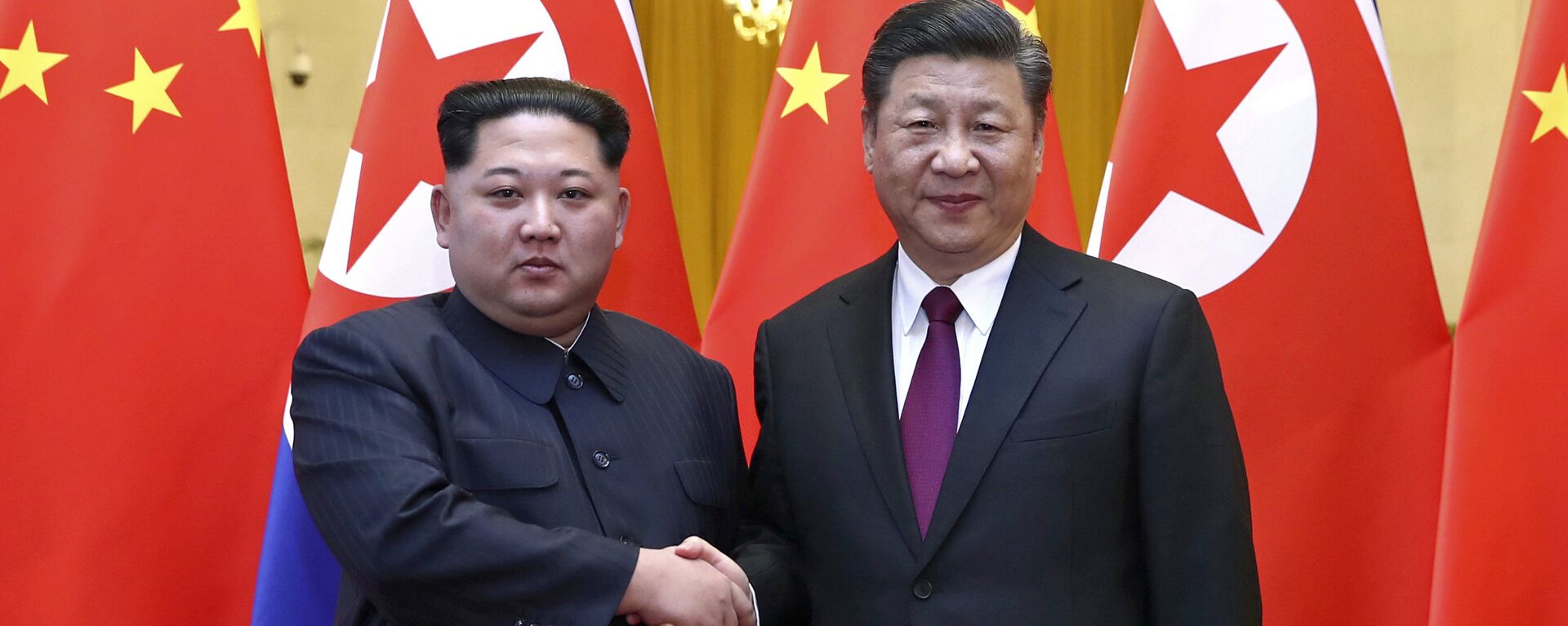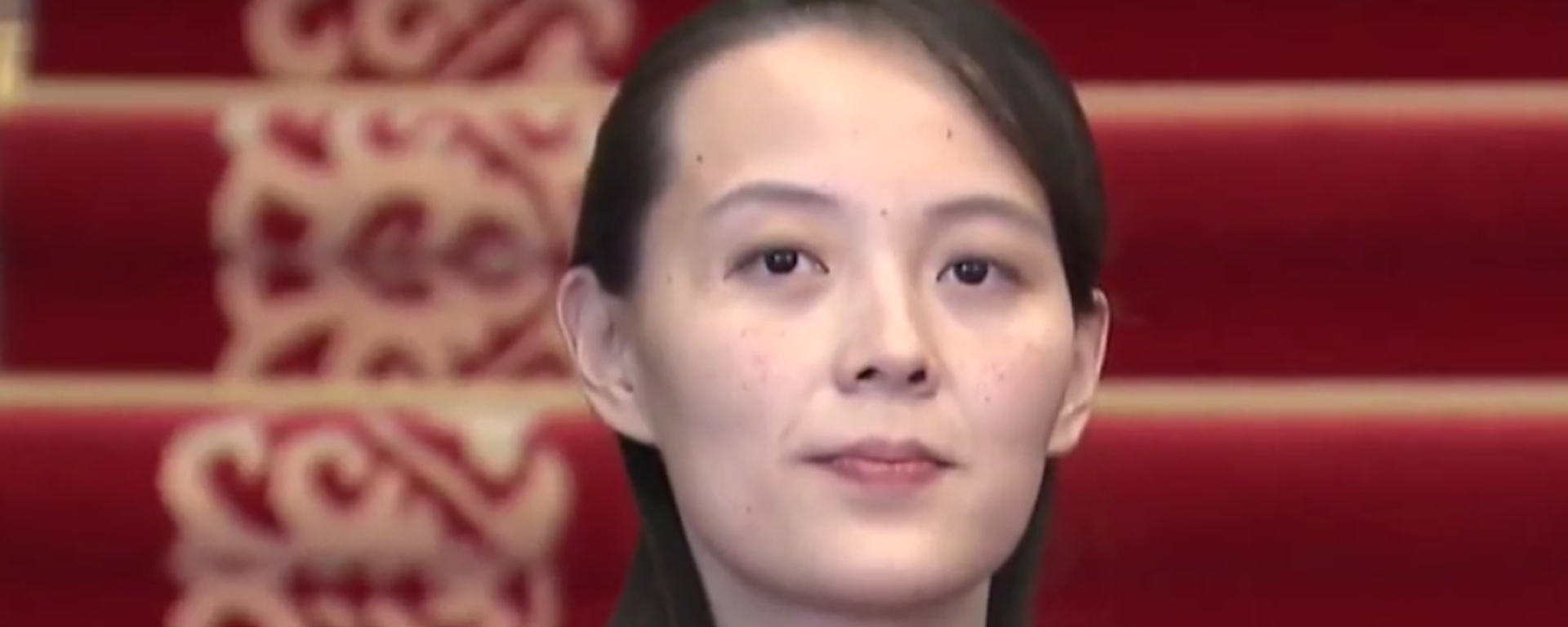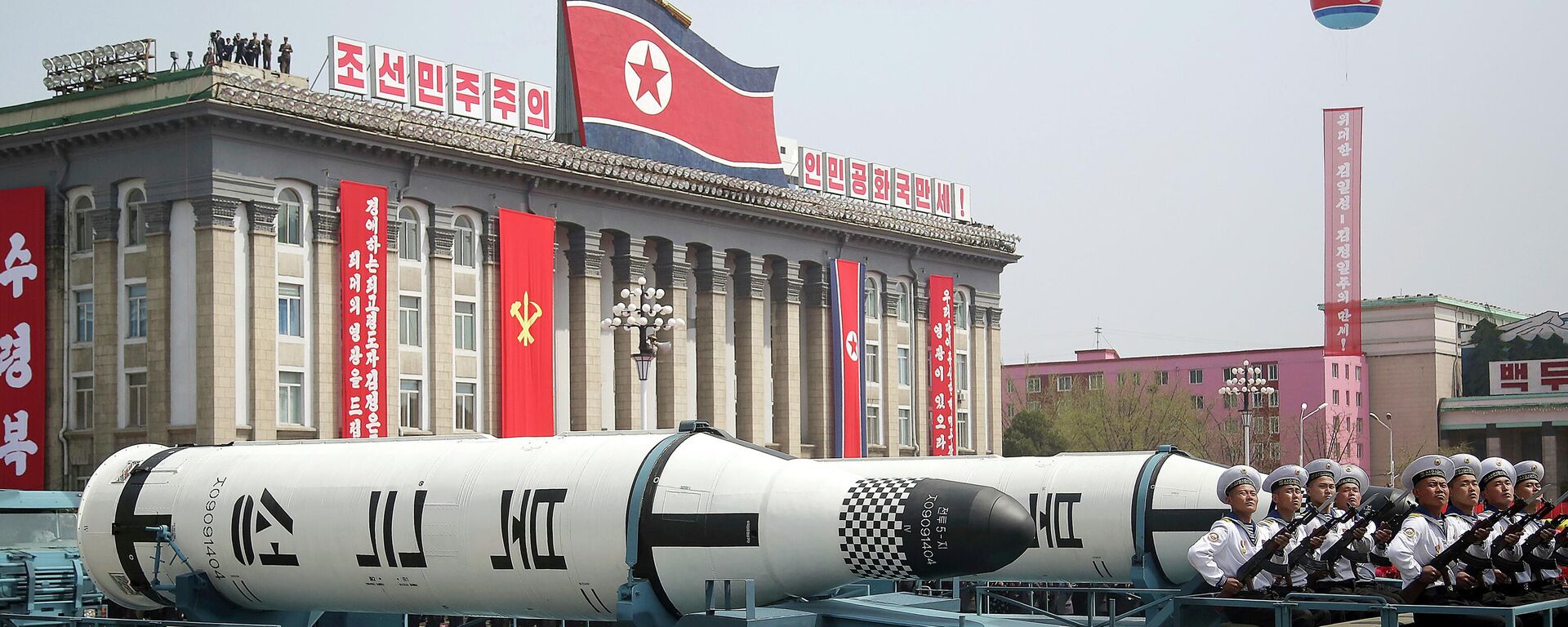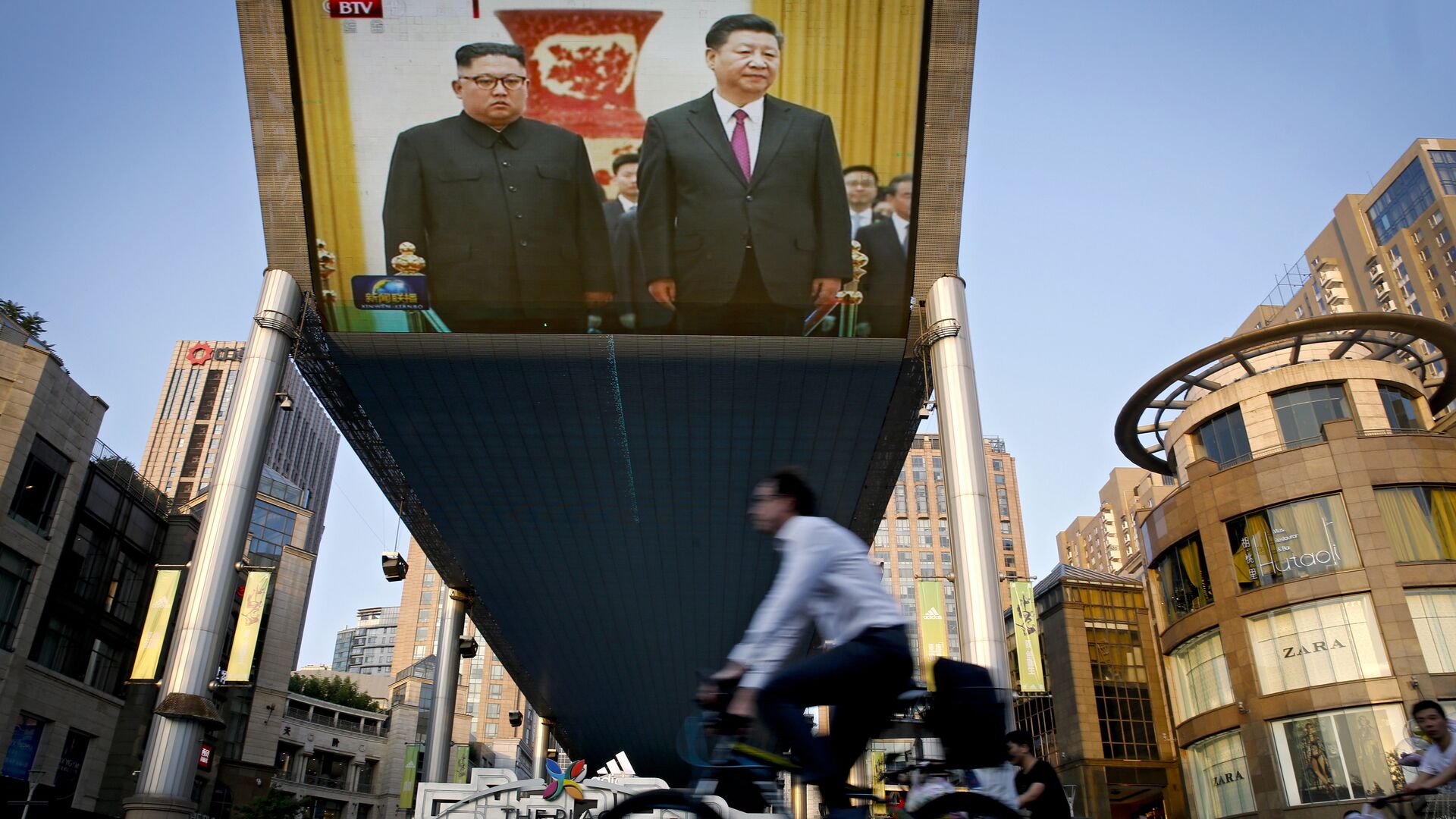https://sputnikglobe.com/20221126/chinas-xi-pledges-to-shore-up-ties-with-dprk-to-promote-regional-and-global-peace-1104737968.html
China’s Xi Pledges to Shore Up Ties With DPRK to Promote ‘Regional and Global Peace’
China’s Xi Pledges to Shore Up Ties With DPRK to Promote ‘Regional and Global Peace’
Sputnik International
Pyongyang has conducted at least 27 missile tests so far in 2022 amid the breakdown of normalization talks with Seoul, and drills near its borders by South... 26.11.2022, Sputnik International
2022-11-26T18:31+0000
2022-11-26T18:31+0000
2023-09-18T13:34+0000
world
china
korean peninsula
xi jinping
kim jong un
asia
north korea
https://cdn1.img.sputnikglobe.com/img/106554/75/1065547596_0:0:5000:2813_1920x0_80_0_0_e11cecf8d88a8b66ffdd142e2cbe6a59.jpg
Chinese President Xi Jinping has expressed Beijing’s intention to continue to strengthen relations with the Democratic People’s Republic of Korea.“Changes in the world, the times, and history are now taking place in an unprecedented manner,” Xi told North Korea’s Kim Jong-un in a telegram in response to a letter sent by latter in October congratulating Xi on his reelection as General Secretary of the Chinese Communist Party.The message highlighted the “common understanding” between Beijing and Pyongyang on important issues, including “the course of political settlement” on the Korean Peninsula and the need to safeguard “peace and stability in the region and the rest of the world.”Xi expressed China’s readiness “to make new and proactive contributions to providing the peoples of the two countries with excellent welfare, giving impetus to the development of the socialist cause of the two countries and promoting regional and global peace and stability, development and prosperity.”Tensions on the Korean Peninsula have escalated dramatically over the past year-and-a-half, with the personal rapport Kim Jong-un had built with his US and South Korean counterparts Donald Trump and Moon Jae-in vanishing after the two men left office in January 2021 and May 2022, respectively, and were replaced by leaders with a more hawkish approach to the DPRK.The cooling of ties led to a resumption of large-scale South Korean, US and Japanese exercises near North Korea’s land borders and coasts, and prompted Pyongyang to ramp up its missile testing activities.Last week, after Pyongyang fired off a long-range missile capable of striking any point in the continental United States, China’s Foreign Ministry called for dialogue to resolve tensions, and stressed that Beijing hopes “all parties will stay committed to seeking a political settlement, and address each other’s concerns in a balanced way.”On Monday, US Ambassador to the United Nations Linda Thomas-Greenfield accused China and Russia of paralyzing the Security Council’s ability to respond to Pyongyang’s missile launches with new sanctions, charging the two countries with “obstructionism” and putting North East Asia and the world in danger.Russian deputy representative to the UN Anna Evstigneeva dismissed these claims, and said Moscow “deeply regret[s] that our Western colleagues have consistently ignored Pyongyang’s repeated calls for the US to cease its hostile activities.”China’s Xi and Kim held three summits between 2018 and 2019, with the North Korean demonstrably picking China for his first trip abroad as leader since taking power in 2011.The two countries share a long and storied history. The People’s Republic came to its neighbor’s aid during The Korean War of 1950-1953, pushing back a US-led coalition of forces, and resulting in a decades-long ceasefire enforced to this day. The two countries drifted apart during the Cold War as North Korea established closer ties to the USSR. In the 1980s, the country developed its own brand of socialism, known as Juche, focusing on self-reliance and political, economic and military independence from foreign institutions and blocs. In the 1990s and 2000s, Chinese patronage helped the DPRK withstand international isolation and threats of aggression from Washington. However, China enforced international sanctions against Pyongyang’s nuclear weapons program, balancing its diplomatic support for the DPRK with its strong economic ties and warming relations with Seoul.
https://sputnikglobe.com/20221023/kim-jong-un-congratulates-chinas-xi-on-reelection-for-third-term-1102549206.html
https://sputnikglobe.com/20221124/us-stooge-kim-jong-uns-sister-blasts-south-korea-for-useless-sanctions-against-pyongyang-1104616824.html
https://sputnikglobe.com/20221120/g7-foreign-ministers-condemn-north-koreas-test-launch-call-for-robust-response-by-unsc-1104473325.html
china
korean peninsula
north korea
Sputnik International
feedback@sputniknews.com
+74956456601
MIA „Rossiya Segodnya“
2022
News
en_EN
Sputnik International
feedback@sputniknews.com
+74956456601
MIA „Rossiya Segodnya“
Sputnik International
feedback@sputniknews.com
+74956456601
MIA „Rossiya Segodnya“
north korea, china, dprk-china ties, relations, kim jong-un, xi jinping
north korea, china, dprk-china ties, relations, kim jong-un, xi jinping
China’s Xi Pledges to Shore Up Ties With DPRK to Promote ‘Regional and Global Peace’
18:31 GMT 26.11.2022 (Updated: 13:34 GMT 18.09.2023) Pyongyang has conducted at least 27 missile tests so far in 2022 amid the breakdown of normalization talks with Seoul, and drills near its borders by South Korean, US and Japanese forces. China has called on all parties to address one another’s concerns through dialogue.
Chinese President Xi Jinping has expressed Beijing’s intention to continue to strengthen relations with the Democratic People’s Republic of Korea.
“Changes in the world, the times, and history are now taking place in an unprecedented manner,” Xi told North Korea’s Kim Jong-un
in a telegram in response to a letter sent by latter in October congratulating Xi on his reelection as General Secretary of the Chinese Communist Party.
The message highlighted the “common understanding” between Beijing and Pyongyang on important issues, including “the course of political settlement” on the Korean Peninsula and the need to safeguard “peace and stability in the region and the rest of the world.”
Xi expressed China’s readiness “to make new and proactive contributions to providing the peoples of the two countries with excellent welfare, giving impetus to the development of the socialist cause of the two countries and promoting regional and global peace and stability, development and prosperity.”

23 October 2022, 12:39 GMT
Tensions on the Korean Peninsula have escalated dramatically over the past year-and-a-half, with the
personal rapport Kim Jong-un had built with his US and South Korean counterparts Donald Trump and Moon Jae-in vanishing after the two men left office in January 2021 and May 2022, respectively, and were replaced by leaders with a more hawkish approach to the DPRK.
The cooling of ties led to a resumption of large-scale South Korean, US and Japanese exercises near North Korea’s land borders and coasts, and prompted Pyongyang to ramp up its missile testing activities.
Last week, after Pyongyang fired off a long-range missile capable of striking any point in the continental United States, China’s Foreign Ministry
called for dialogue to resolve tensions, and stressed that Beijing hopes “all parties will stay committed to seeking a political settlement, and address each other’s concerns in a balanced way.”
On Monday, US Ambassador to the United Nations Linda Thomas-Greenfield accused China and Russia of paralyzing the Security Council’s ability to respond to Pyongyang’s missile launches with new sanctions, charging the two countries with “obstructionism” and putting North East Asia and the world in danger.

24 November 2022, 07:26 GMT
Russian deputy representative to the UN Anna Evstigneeva
dismissed these claims, and said Moscow “deeply regret[s] that our Western colleagues have consistently ignored Pyongyang’s repeated calls for the US to cease its hostile activities.”
China’s Xi and Kim held three summits between 2018 and 2019, with the North Korean demonstrably picking China for his first trip abroad as leader since taking power in 2011.
The two countries share a long and storied history. The People’s Republic came to its neighbor’s aid during The Korean War of 1950-1953, pushing back a US-led coalition of forces, and resulting in a decades-long ceasefire enforced to this day. The two countries drifted apart during the Cold War as North Korea established closer ties to the USSR. In the 1980s, the country developed its own brand of socialism, known as Juche, focusing on self-reliance and political, economic and military independence from foreign institutions and blocs. In the 1990s and 2000s, Chinese patronage helped the DPRK withstand international isolation and threats of aggression from Washington. However, China enforced international sanctions against Pyongyang’s nuclear weapons program, balancing its diplomatic support for the DPRK with its strong economic ties and warming relations with Seoul.

20 November 2022, 19:59 GMT





